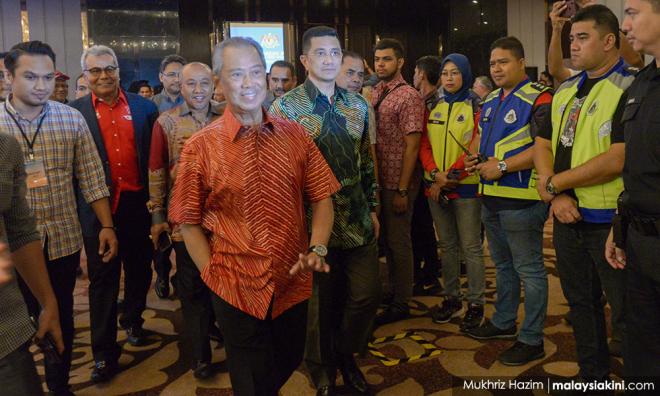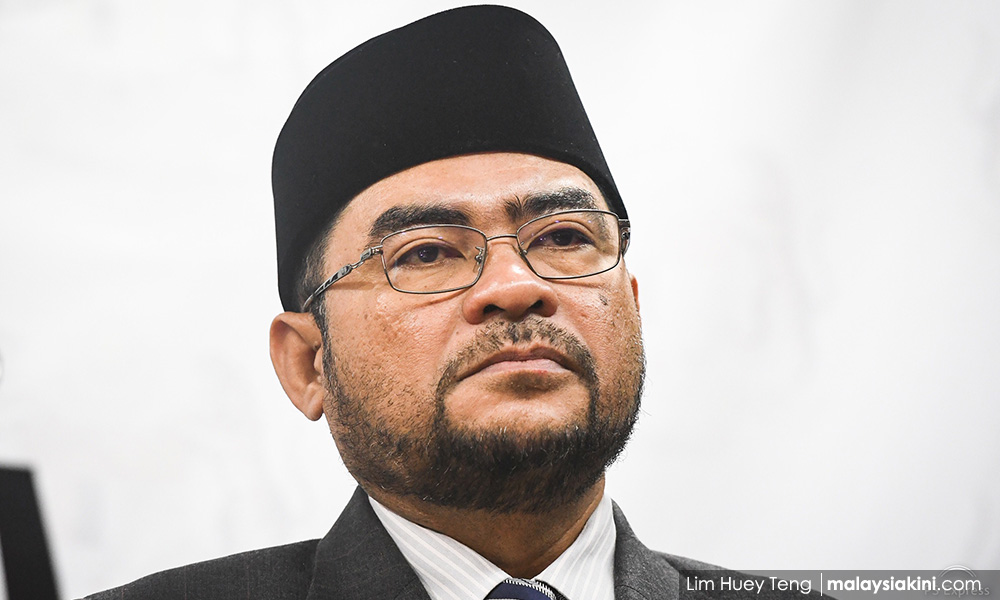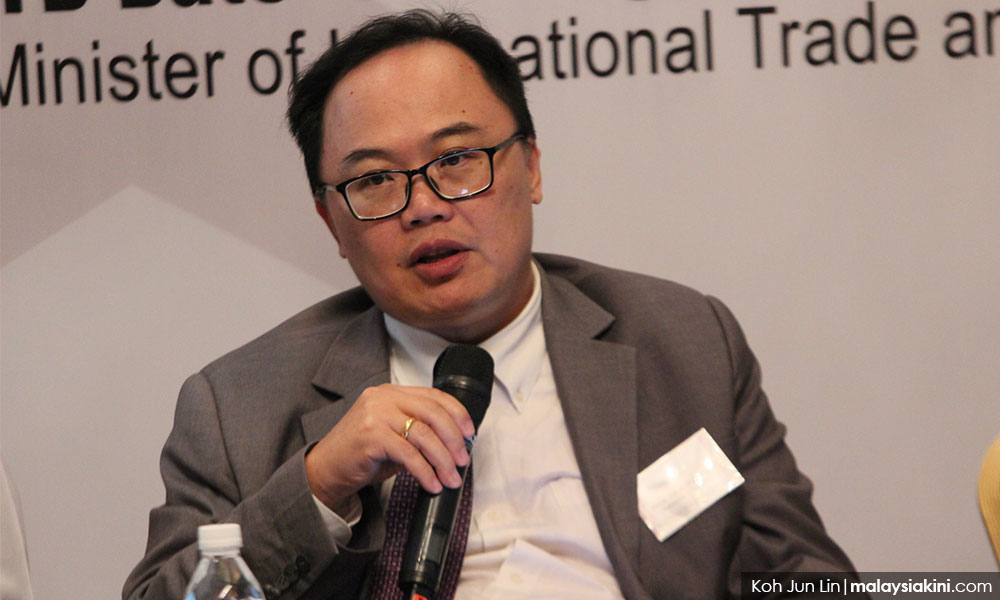
Power here is a zero-sum game and, in this case, the non-Malays and non-Muslims in Malaysia are the losers.
– James Chin
James Chin, professor of Asian Studies, University of Tasmania, wrote a bleak piece lamenting the right turn of recent Malaysian politics due to the Sheraton Move and his article’s ominous last line is the opening quote of this piece. Andrew Sia meanwhile asked, should the non-Malays just give up? Fa Abdul warns that non-Malay fears are justified.
All these pieces imply two points which I think need parsing. First, this idea that non-Malay political operatives have drawn a line in the sand when it comes to the state’s religious and racial policy. The second that non-Malay political operatives have been successful in maintaining that line in the sand.
Both are false in the sense that non-Malay political participation has always been about providing a fig leaf of "moderation" for anxious Malay power structures. The Arabisation process happened and the MCA for decades narcotised the Chinese community with piecemeal offerings to satisfy the preoccupations of the community. The recent murmurs by MCA about how the funding for TAR UC returning to "normal" is a case in point.
Please do not get me started on Indian political operatives and their role in this mess. I would argue that the MIC damaged the Indian community more than mainstream Malay power structures – and I have beaten that dead horse too many times.
Meanwhile, under the Harapan regime, we have seen the rise of Zakir Naik, the machinations of the mufti of Perlis, the abandonment of secular and egalitarian policies of the manifesto, the LTTE fiasco where Harapan political operatives were arrested, the "Chinese" communist scare and various other pro-Islamic initiatives carried out by the ever compassionate Mujahid Yusof Rawa (photo) on the Muslim polity.

This idea that non-Malay participation in the political process reflects a sort of equilibrium seems, to me, more placebo to calm non-Malay anxiety than any real reforms to the system. The fact that certain states with larger non-Malay populations and aligned with Harapan will have to decide how far they are willing to bend when it comes to the orders from Putrajaya will no doubt be a collision of states rights (legalese) and political will.
As I write this piece, speculation that a new cabinet will be sworn in this week, is an interesting development because we will finally be able to see what a Perikatan Nasional (Perikatan) government looks like. Are there any clean players in this coalition? To be honest, I wondered if there were any clean players in Harapan too?
The big question is, will non-Malays be punished under this new regime, despite all the feel-good rhetoric coming from the victors of the Sheraton Move? Rhetoric, which apparently has not met with much enthusiasm by the Umno base, if the reportage is to be believed.
We already know that when it comes to egalitarianism and secularism, this would not be an issue with this new government. Truth be told: it was not really an issue with the old government, either.
Let us face facts. Harapan does not have a good track record with towing the secular and egalitarian line. Elimination of All Forms of Racial Discrimination (Icerd), the Rome Statute and the numerous other ideas which would save Malaysia but alienate the Malay polity were abandoned by Harapan for political and racial expediency.
The big question is, how far will Perikatan go in the cordoning of our public and private spheres using race and religion, but more importantly, how many Malay political operatives from Harapan will accept these policies? Like I said, for certain states, it will be a collision of state rights and political will.
With the possible inclusion of Abdul Hadi Awang in this Malay uber alles cabinet, the prognosis does in fact seem bleak. Hadi, if you remember, is a big advocate of the “pak turut” school of moderation, hence we should understand that if there are any Indians or Chinese in the cabinet, their roles would be limited to the extent of just nodding their heads. To be fair, they do not actually represent their communities. So, now more than ever, their participation is really just a fig leaf for "inclusion".
Of course, for any policy to take effect and not just by fiat, Perikatan would need the numbers in Parliament. What is really troubling is if the Malay political operatives in Harapan choose to side with whatever “Islamic” or “Malay entric” diktats Perikatan comes up with, all for the cause of "not spooking the Malays".

Chin (photo) wrote: “Umno is still sore at the Malaysian Chinese and Indian population for voting en bloc against Umno in 2018, which led it to lose government. Now it’s payback time. Expect more Malay-centric policies that will punish the Chinese and Indians." I think it has more to do with the fact that the Malay establishment is weak at the moment and historically it has always been insecure.
The only reason why Perikatan continues to make overtures to the non-Malay community is that it needs them as a fig leaf in its charade as a multiracial/multi-religious coalition and maybe to hedge its bets against the possibility of a sizable Malay revolt. Not to mention that the plum urban seats are the trough from which its cronies feed.
By now, they are realising that Bersatu is a lame-duck party. The Umno leadership is battling a slew of corruption charges and while the PAS leadership is making the right noises, the PAS base is wondering why the leadership is not flexing its muscles now that it is a part of the federal government.
An emboldened PAS would mean more concessions to Islamic imperatives and this pantomime of a tolerant Islam would be in jeopardy with only the royalty (maybe) keeping up an appearance of moderation.
The main takeaway I get from political operatives in Perikatan is that the prime minister has to consolidate his position because if his government collapses, it would demonstrate that a "Malay only" government – with a fig leaf of non-Malays participation – is untenable and a loss of face for the far-right and agents of the fascist state. When Malay power structures have been in peril, they always turn to race and religion to gin up the base.
The goal of fear is to make us distrustful of our fellow Malaysians when we should be distrustful of the system and how the political operatives we give our votes to manipulate our fears. As I said in my last piece, we need a clear choice and not politicians who fudge on issues because it keeps them in power.
We should understand that keeping them in power, in reality, meant bupkis when it came to maintaining that line in the sand, when it came to the creation of an ethnocracy – or if we are unlucky – a theocracy.
S THAYAPARAN is Commander (Rtd) of the Royal Malaysian Navy. A retired barrister-at-law, he is one of the founding members of Persatuan Patriot Kebangsaan. - Mkini


No comments:
Post a Comment
Note: Only a member of this blog may post a comment.